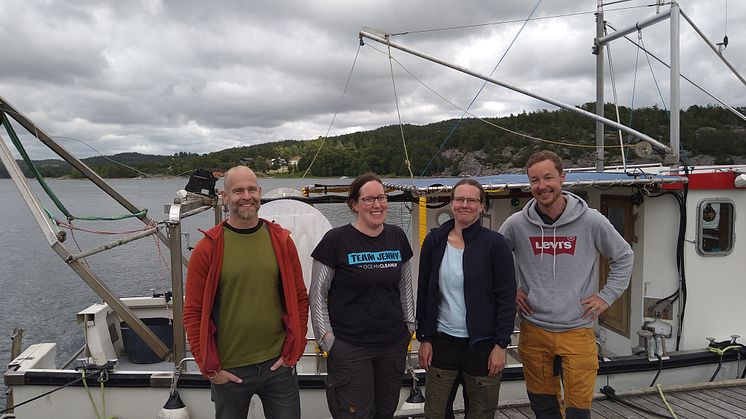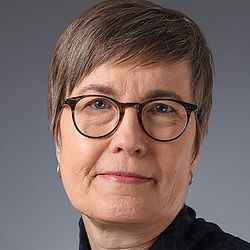
Press release -
Monitoring staff with a license to dive
Now Umeå University can proudly present four employees who have obtained the Swedish professional diving certificate S-30. On behalf of the Swedish Agency for Marine and Water Management, macrovegetation in the Gulf of Bothnia will be monitored within the national environmental monitoring.
In March, the training for scientific divers began for Jenny Ask, Joakim Ahlgren, Robin Bergman and Martina Jeuthe, all staff at Umeå Marine Research Centre, UMF, at Umeå University. Since then, it has been hard work and many hours of practice beneath the surface.
"We have been commissioned by the Swedish Agency for Marine and Water Management to monitor macrovegetation in the Gulf of Bothnia. This means, for example, that we will investigate how deep different algae and plants are found on the seabed. Depth range and species composition of vegetation gives an indication of the environmental status, partly because the depth range is affected by eutrophication, says project manager Jenny Ask, researcher and environmental analyst at UMF, Umeå University.
The Swedish professional diver certificate S-30 aimes at scientific divers, who dive to photograph, collect samples, or otherwise document life below the surface. The number 30 indicates that they are trained to be able to dive down to a depth of 30 meters. This is quite sufficient for the activities that now will be launched at UMF.
For more information, please contact:
Jenny Ask, Umeå Marine Research Centre, Umeå University
Phone: +46 70 610 28 87
Email: jenny.ask@umu.se
Topics
Categories
Umeå University
Umeå University is one of Sweden’s largest institutions of higher education with over 36,000 students and 4,000 faculty and staff. The university is home to a wide range of high-quality education programmes and world-class research in a number of fields. Umeå University was also where the revolutionary gene-editing tool CRISPR-Cas9 was discovered that has been awarded the Nobel Prize in Chemistry.
At Umeå University, distances are short. The university's unified campus encourages academic meetings, an exchange of ideas and interdisciplinary co-operation, and promotes a dynamic and open culture in which students and staff rejoice in the success of others.


